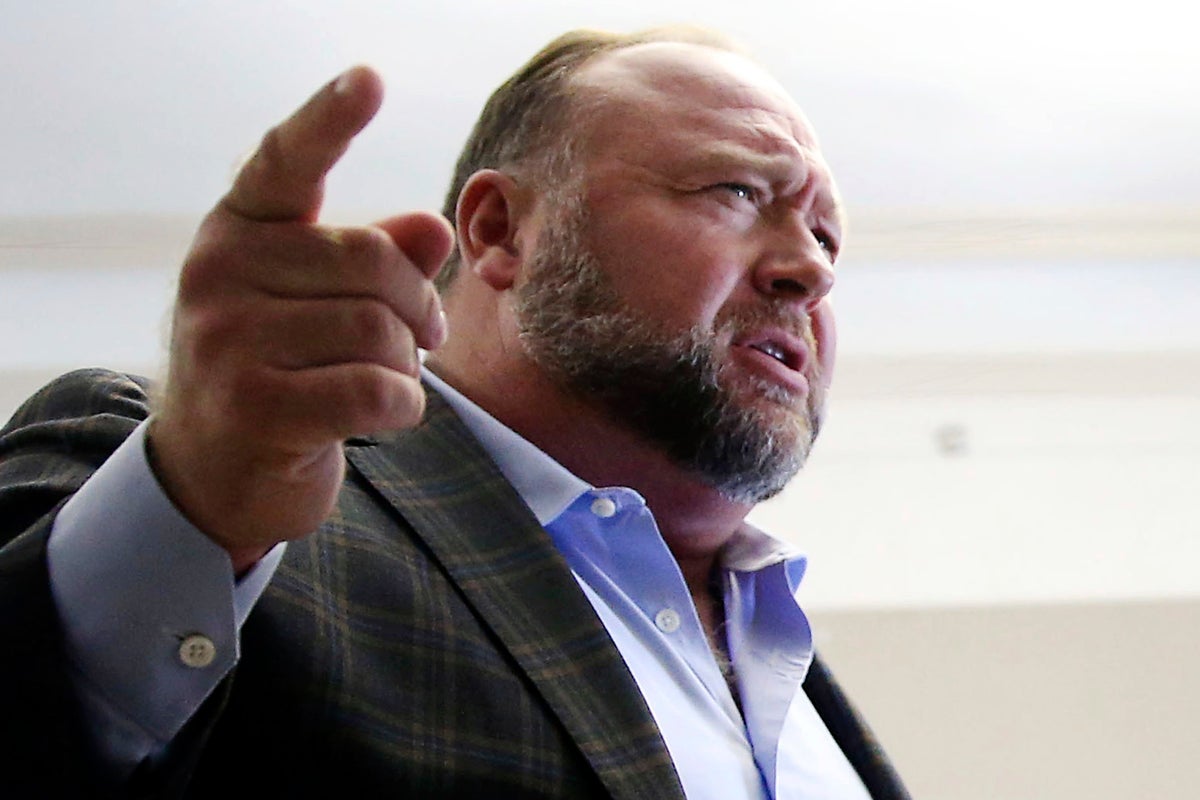
Alex Jones and Infowars were sanctioned just minutes into the second damages trial over his false claims about the Sandy Hook school shooting.
The trial started on Tuesday in Connecticut, where the shooting took place almost a decade ago on 14 December 2012.
Judge Barbara Bellis issued a ruling that Mr Jones and Infowars will not be allowed to argue that they didn’t make considerable profits from covering the shooting because they didn’t hand over Google Analytics data concerning the traffic of Infowars to the plaintiffs, Vice reported.
Mr Jones and other individuals appearing on Infowars falsely claimed for several years that the massacre was a hoax. Mr Jones has said that he doesn’t retain that position anymore.
Towards the end of last year, Mr Jones and Infowars were found liable by default in a number of civil cases in Connecticut and Texas, where Infowars is located.
That ruling means that this trial, and the one before it that took place in Texas, are only meant to decide how large the damages will be.
The first trial included other plaintiffs and found that the defendants should pay $49.3m in damages. The plaintiffs in the trial in Connecticut are eight families who lost family members in the shooting as well as an FBI agent who responded to the school.
Before the jury entered the courtroom on Tuesday, plaintiffs’ lawyer Alinor Sterling requested that the judge approve sanctions against Mr Jones and Infowars, arguing that they found a spreadsheet of Google Analytics listing traffic until June of 2019 despite the defendants’ claiming that no such document existed.
Ms Sterling said the “sequence of misconduct” was “profoundly disturbing” and that it should lead to “significant sanctions,” according to Vice.
While Norm Pattis, an attorney for Mr Jones and Infowars, said he was “not happy” that the data hadn’t been turned over, he argued that it was irrelevant, claiming that there wasn’t any evidence showing that Infowars had allowed the numbers to impact its coverage on the air.
Judge Bellis said that Infowars showed a “stunningly cavalier attitude with respect to their discovery obligations”.
Infowars had “consistently engaged in dilatory and obstructive discovery practices,” the judge said, adding that this partly prompted the default judgement.
The judge ruled that Mr Jones and Infowars won’t be able to argue that they didn’t make substantial profits from their coverage of Sandy Hook, which could harm their attempts to restrict the damages they will be ordered to pay.
Mr Jones wasn’t in the courtroom at the start of the second trial, which is expected to go on for between four and five weeks.







